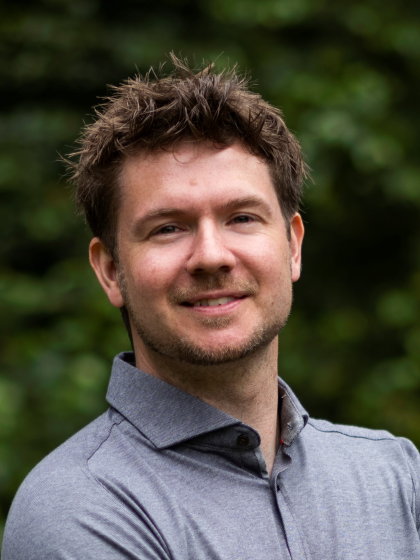prof. dr. J.R. (Ruud) den Hartigh

Selection of recently funded projects
Resilient athletes: A multidisciplinary personalized approach
Athletes are exposed to various physical and mental stressors, such as high training loads and defeats. For professional sport organizations, maintaining and improving the resilience of athletes is top priority in order to prevent performance decrements and physical or mental problems. The aim of this project is to gain novel insights into resilience, and to provide athletes and coaches with concrete feedback on the resilience of athletes (see https://project-ris.nl/index.html). In order to meet this aim, we established an interdisciplinary collaboration between psychologists, human movement scientists, and data scientists. Furthermore, we collaborate with sports clubs that have high-quality resources (measurement infrastructure and personnel) to obtain daily measures of physical and mental states of athletes: The Dutch premier league soccer clubs PSV, Vitesse, and FC Groningen. This project received funding from ZonMw in 2019 (program Sport and Exercise).
The KCT platform: Improving selection and resilience in the Dutch Special Forces
The special forces of the Royal Netherlands Army (Korps Commando Troepen, KCT) is tasked with special operations that can take place anywhere in the world under any circumstances. In order to become an operator, candidates must go through a tough and intensive training program. In this program, only the ones who can withstand the heavy mental and physical stressors will succeed. The general aim of this research project is to answer questions such as 1) what factors should we focus on when selecting operators (i.e., commandos)? and 2) if we follow operators longitudinally, can we predict when they are likely to collapse (during a training period or a mission, for example)? To meet these aims, we designed a platform that allows efficient data collection and automatic data analysis (https://yourspecialforces.nl). Ultimately this project may inform about best-practice selection methods, as well as interventions to maintain the health and performance of (specially trained) individuals. This project is carried out in a close collaboration with the Special Forces unit of the Royal Netherlands Army, and received funding from the Dutch Ministry of Defence in 2019.
Recognizing and selecting potential of elite soccer players
To select talents in sports it is important to use the right indicators of later excellent performance, which is a major challenge. In this project we focus on best practices in talent selection. One topic concerns the scouting of athletes, soccer players in particular. Scouts and trainers often base their judgment of a player on their general impression when watching him or her play. Could judgments of scouts be improved when making use of pre-defined scoring sheets and statistical ‘decision rules’? Furthermore, characteristics of soccer players, such as technical and psychological skills, are often assessed separately in non-soccer specific settings. Could we make better assessments of soccer players when examining the performance of players during matches and game plays? We specifically study whether the latter approach provides better indicators (i.e., predictors) of players’ future performance. This project is carried out in close collaboration with FC Groningen, and is co-funded by the Dutch Royal Football Association (KNVB).
PhD students
Yannick Hill (finished 2020): A dynamical approach to psychological resilience
Tom Bergkamp (finished 2022): Talent Assessment in soccer: Predicting performance through the lens of selection psychology
Jeremy Dillmann (finished 2023): Keeping the driver in the loop while driving with conditional automation: A perception-action theory perspective
Joske van der Sluis: The link between affordances and psychological momentum
Rik Huijzer: Data science applications to improve performance and selection in the Dutch Special Forces
Niklas Neumann: Resilient athletes: A multidisciplinary personalized approach (1)
Jur Brauers: Resilient athletes: A multidisciplinary personalized approach (2)
Jan Verbeek: Talent development in football from a dynamical bioecological perspective
Sem Otten: Optic flow and effort: A test of the psychological momentum hypothesis in the context of cycling performance
Ilse Peringa: Predicting performance in the complex soccer environment
